Neither Belarus Nor Russia Has Legitimate Presidents Or Parliaments
12- Andrei Sannikov
- 19.09.2019, 11:22
- 33,836
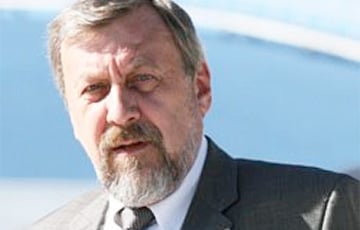
What kind of "union state" can we talk about?
The leader of the European Belarus civil campaign, former presidential candidate Andrei Sannikov spoke in Toronto (Canada) at the conference dedicated to the 80th anniversary of the Nazi-Soviet pact of 1939. We present the theses of his speech:
– You have noticed that among the sponsors and organizers of this event there are so many free countries of Central and Eastern Europe and former USSR but official Belarus is nowhere to be seen. It is appropriate though quite painful to realize that unlike many of your neighbors you are more or less independent but not free.
Belarus is not free today, moreover it is ruled by a dictator who is an admirer of both Nazi Germany and totalitarian Soviet Union. In 1995 Lukashenka praised Adolf Hitler as a model for his regime and later he constructed a military amusement park near Minsk, called “Stalin’s Line” with a sculpture of his another role-model Joseph Stalin.
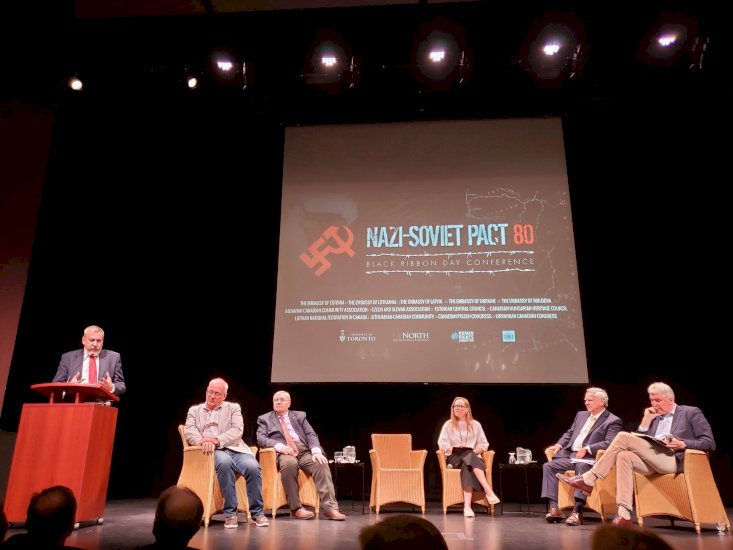
The regime in Belarus is anti-Belarusian so the organizers were absolutely right not to invite officials from Belarus to this event.
At the same time I must say that I’m very honored and proud to represent here a free, democratic and European Belarus that will eventually join you.
Molotov-Ribbentrop Pact which is quite appropriately called here Nazi-Soviet Pact and which was concluded 80 years indeed requires an accurate historic assessment, but not only. More important it is to prevent such things from happening. For this it is necessary first of all to digest the overall picture of how the fate of nations was and is decided without their participation and against the will of the peoples.
Speaking in Poland at the ceremony to mark 80 years since the beginning of WWII Estonian President Kersti Kaljulaid said: “For Estonia, World War II actually ended only 25 years ago, when the last vehicles containing the occupying troops' hardware left our soil. The outbreak of war meant for our people, our nation, and the state, more than half a century of suffering, economic regress, and absence of freedom". Same can be said about Lithuania, that completed withdrawal in 1993 and Latvia which got rid of the Soviet troops in 1995.
Same is true for other East European countries.
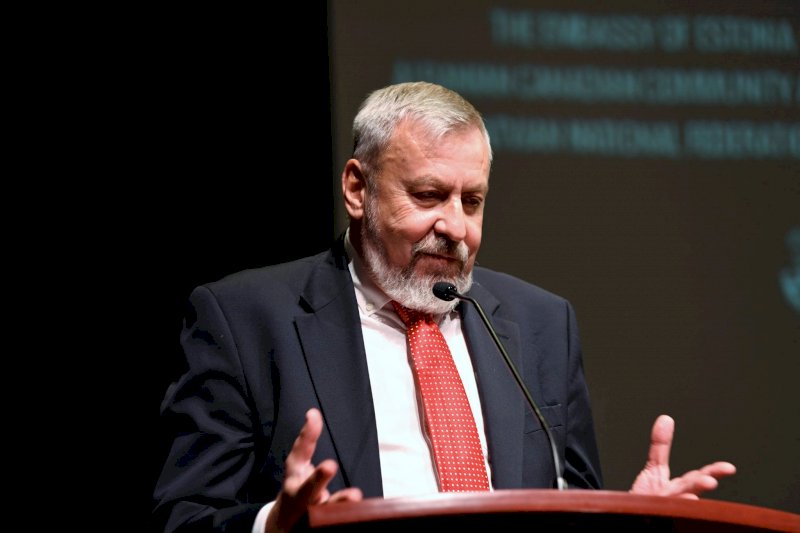
However ,speaking of my country, Belarus, I would probably say that not only WWII but in fact WWI is not over from the point of view of partitioning Belarusian lands over the last century which had a very heavy impact on the modern Belarus in fact preventing it to become a fully independent state.
In the beginning there was the separate Treaty of Brest-Litovsk of March 3, 1918, by which Russia and the Central Powers divided nations of Eastern Europe, including Belarus.
The most painful and tragic for Belarus was the Peace of Riga signed on March 1921 to end the Soviet-Polish war. According to this treaty Belarus lost 29 districts (a territory of 113,000 square kilometres with 3.6mln of population). It was partitioned between Soviet Russia and Poland. Belarusian delegation was not allowed to the negotiations and was allegedly “represented” by bolshevik Russia that just traded in our territory to pursue its aims.
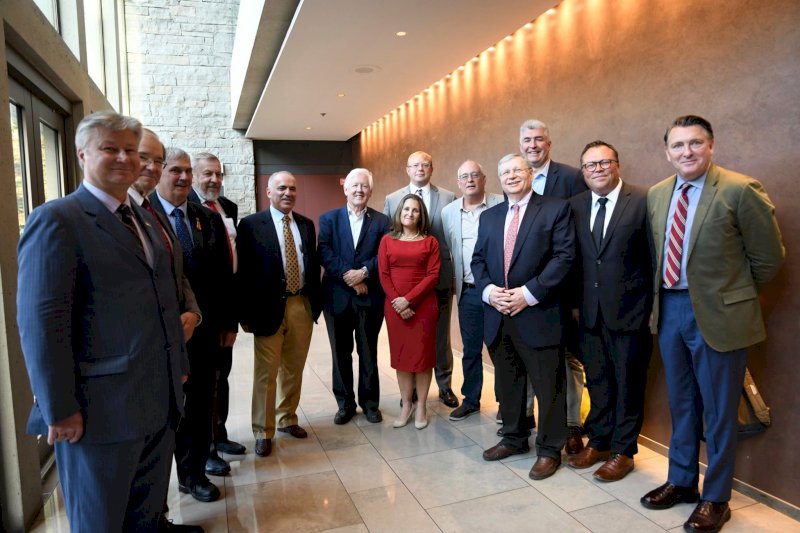
with Canadian Foreign Minister Chrystia Freeland
For Belarus all these partitions were really catastrophic because it was brutally prevented from becoming a full-fledged independent country. We are still fighting for our independence.
All these “peace” treaties were accompanied by plundering of our history, culture and cultural heritage. Till these days there are more of our national treasures outside Belarus than in Belarus itself.
As a result of Molotov-Ribbentrop Pact of 1939, of which we are talking today, some Belarusian lands were reunited but Belarusians had to pay an enormous price for it: mass deportations and physical elimination of the local inhabitants, considered not loyal to the communist authorities, restriction of religious rights and other atrocities started to happen on the “liberated” territories. In fact, Western Belarus became a big concentration camp.
The lesson of Molotov-Ribbentrop unfortunately is not learnt even today.
The lesson for the democratic world is to learn to protect its values by defending independence and territorial integrity of the countries and freedom of the peoples and abandoning the game of “spheres of influence” that is being imposed on the democracies by authoritarian and dictatorial regimes.
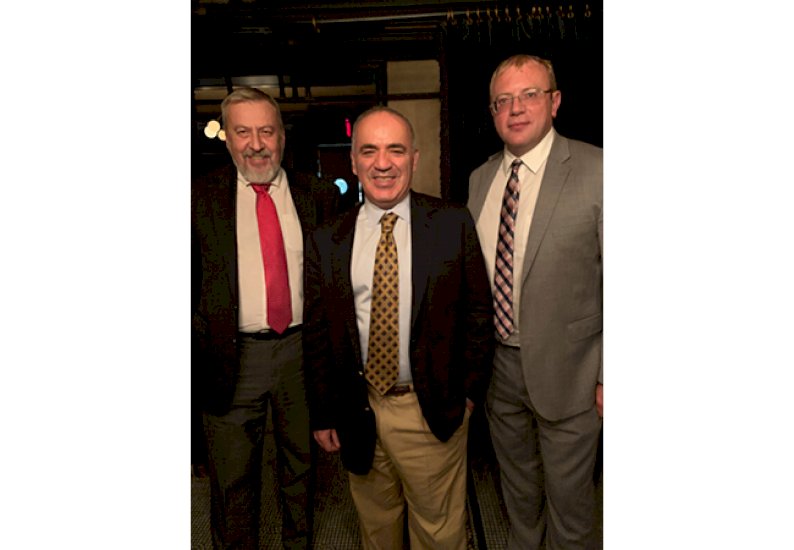
Prevention is the key word here. Russian aggression in the region and its renewed expansionism didn’t start with the invasion of Ukraine, nor with the invasion of Georgia. The grounds for it were laid even not under Putin. Conceptual base was prepared immediately after the democratic revolution in the former Soviet Union and its dissolution. It is during the democratic transformation and emergence of independent states the concept of “near abroad” was coined in Kremlin and initially accepted by the West.
It was a clear continuation of the logic of the Nazi-Soviet Pact. With its “near abroad” doctrine Kremlin claimed its control over the new independent states.
Even under Yeltsin Russia never abandoned its imperial ambitions. It was Yeltsin who signed so-called “union treaty” with Lukashenka in 1996.
Under Putin this “Pact logic” started to develop with terrifying speed accompanied by massive modernization of the Russian army.
Those developments eventually led to the Russian war in Georgia which lost some of its lands, and the invasion of Ukraine.
This concept today is clearly visible in the new Russian military doctrine approved by Putin in December 2014. The doctrine envisages Russian military actions beyond Russian borders to protect its compatriots. In general the doctrine is an ideological basis for Kremlin support for dictators and justification for use of force against peaceful transitions not only in Russia but also abroad.
In Belarus it took a most dangerous form that was actually called a new Ribbentrop-Molotov Pact by some experts. In December 2016 Lukashenka signed decree #446 on participation of special forces in the counter-terror operations on the territories of Russia and Belarus which in fact is an invitation to Russia to use force on the territory of Belarus.
Nazi-Soviet Pact of 1939 should serve as a reminder not to ignore the dangers of authoritarianism and dictatorship.
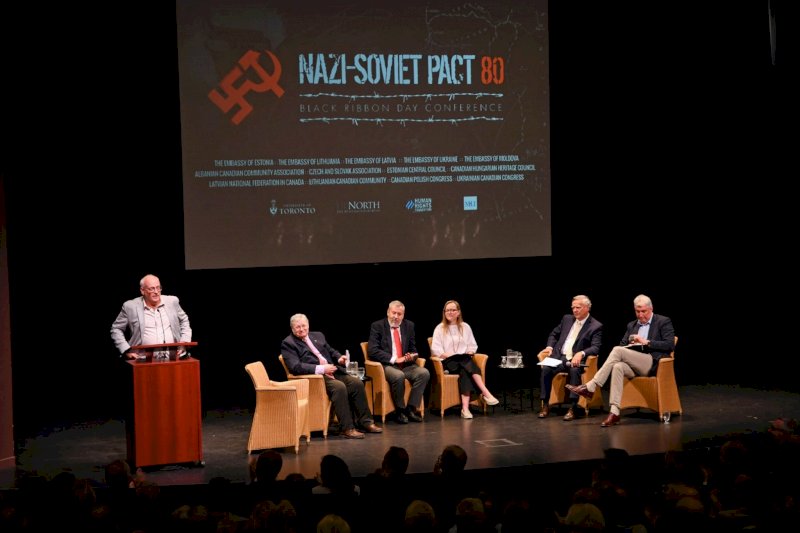
Belarus is in a difficult situation today. It can be said that it is under a double threat: from the anti-Belarusian regime of Lukashenka and from the imperial Kremlin.
Belarus needs to be supported in its fight for freedom. It is not difficult to provide such support – stop flirting with dictators. Stop rewarding them with international recognition. Stop giving them presents like Olympic Games, World Cups or Europe-USA track and field matches.
I fully agree with Garry Kasparov that dictatorship is a dictatorship, lie is a lie and murder is murder. Both Putin and Lukashenko regimes are very well known in the world as dictatorships that kill political opponents and lie about everything.
The dangers of Belarus being swallowed by Russia have to be recognized and opposed. The democracies must clearly state today that there will no recognition of any attempt of Russia and Belarus create any kind of a state since both countries don’t have legitimate presidents and parliaments and do not act on behalf of their peoples.
It has to be remembered that whenever Western democracies choose realpolitik and appeasement instead of values evil attacks.
Belarus is important for Europe. Belarus is important for transatlantic community. Without Belarus they are not complete.









